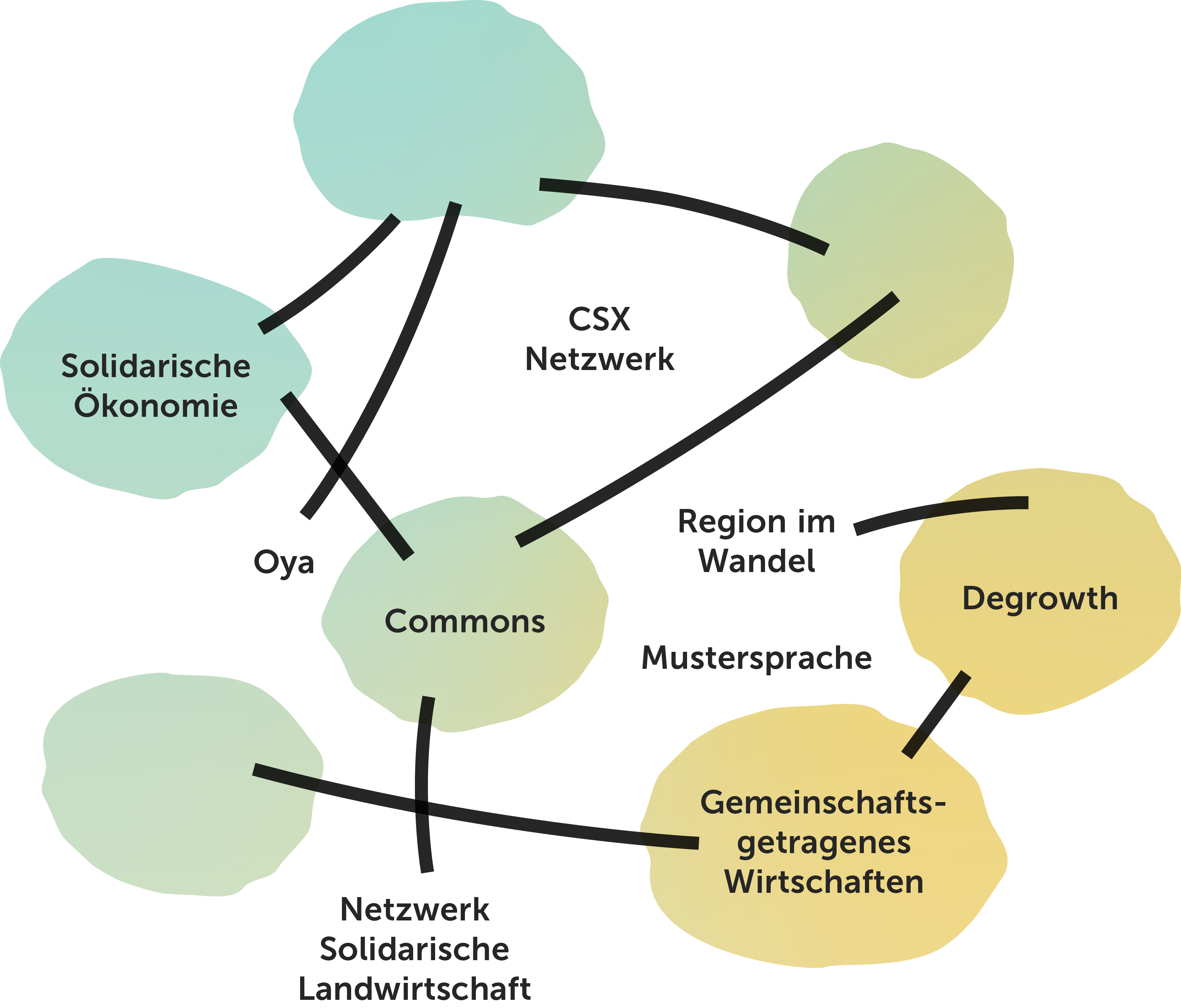all we
have
is now
The economic system that dominates our world is reaching its limits. The crises and disasters that it has entailed are reaching its centre. More and more people understand this and fear for the future, but see no alternative. Yet time is pressing.
The answers of even progressive parties do not go beyond 'we'll make it a little less bad' and leave the field to right-wing populist efforts. Yet there is an alternative that makes a good life possible for all, including what we call the environment: replacing competition by mutuality.
We in the Netzwerk Oekonomischer Wandel - Network Economic Transformation (NOW NET) advocate for such an economy. Everyone is welcome to help advancing this vision. Many of us have been active in different alternative economic movements for a long time. Many in other movements. We have come together to represent in diversity what unites us – the understanding that our different paths lead to a common vision: a deeply democratic and needs-based society.
The three paths that have become evident for this change are:
Aligning the economy with the common good and thus reducing market competition
Markets, and thus the logic of profit and competition, are neither a law of nature nor a necessity. On the contrary: the real goal of economic activity, satisfying needs, in the market economy requires money. Therefore, goods go where the money is, not where the needs of the people are. At the same time, by necessity, the economy must always grow, thus destroying the earth instead of preserving it for the future. To change this and to achieve the good life for all within planetary boundaries, markets are dismantled and, where they are (still) unavoidable, aligned with the common good. There are many possibilities for this.
First steps in this direction can be taken, for example, by
- radically reducing standard working hours so that people have more time to develop a democratic and community-based economy
- protecting people from being compelled to work and from exclusion by providing them with material subsistence
- promoting care for people and the environment, and sanctioning their damage
- establishing legal forms that strengthen the common good
- giving priority to regional resource cycles and, where global economic relations make sense, making them as democratic as possible.
Democratising the society comprehensively
If it is no longer the market that distributes resources, then these decisions must be taken differently. If it is not to be a centralised state, then the society needs to be democratised. Democracy is more than going to the polls. Democracy means that all people have a say in all decisions that affect them. And this in all areas of society.
To achieve this, firstly, self-determination must be made possible in all areas of society by ensuring that all people who are affected by a decision have the opportunity to actively participate in setting the rules. This can mean either taking part in decision-making, or electing representative bodies, or delegating one's own voice to others. Secondly, decisions should always be made at the smallest possible level. Thirdly, there is a need for a welfare system that ensures participation. This means free access to housing, food, health, education, and culture for all.
Create Commons
In processes of a deepened democratic nature, rules of the game are already emerging for an economy that expands the commons. Commons are nothing new, they are basically a matter of course. People have always shared ideas, things, or activities. They organise many things together. They do things as a matter of course, motivated by desire and necessity. The concept commons describes such practices.
Commons stand for a threefold claim: No one should be left out. No human being should go empty-handed. And the non-human living world is respected.
This is the ethos of care, guiding community-based digital platforms, independent research, self-help groups, solidarity-based agriculture and housing etc. In all these contexts you can feel it: Commons are not a thing, but a doing, a common creation. Ensuring satisfying ways of our relating and living is what is commons all about.
Commons start from the question: What do we all need to live well? It is the art of directing attention, energy and resources, together with others, towards providing for ourselves and feeling a sense of belonging. It is also about handling goods in such a way that everyone can live well.
All forms of caring and decommodified work are valued equally. Ultimately, commoning is the path to bringing our abilities into the world because we care.
These three paths are entwined with a variety of practices and measures. What these are and could be can be found on the website waswirtunkoennen.jetzt, also inspired by NOW NET.
Only an economy that does not operate at the expense of others is a free economy. Only with each other can we enable ourselves to live in freedom in this world.

